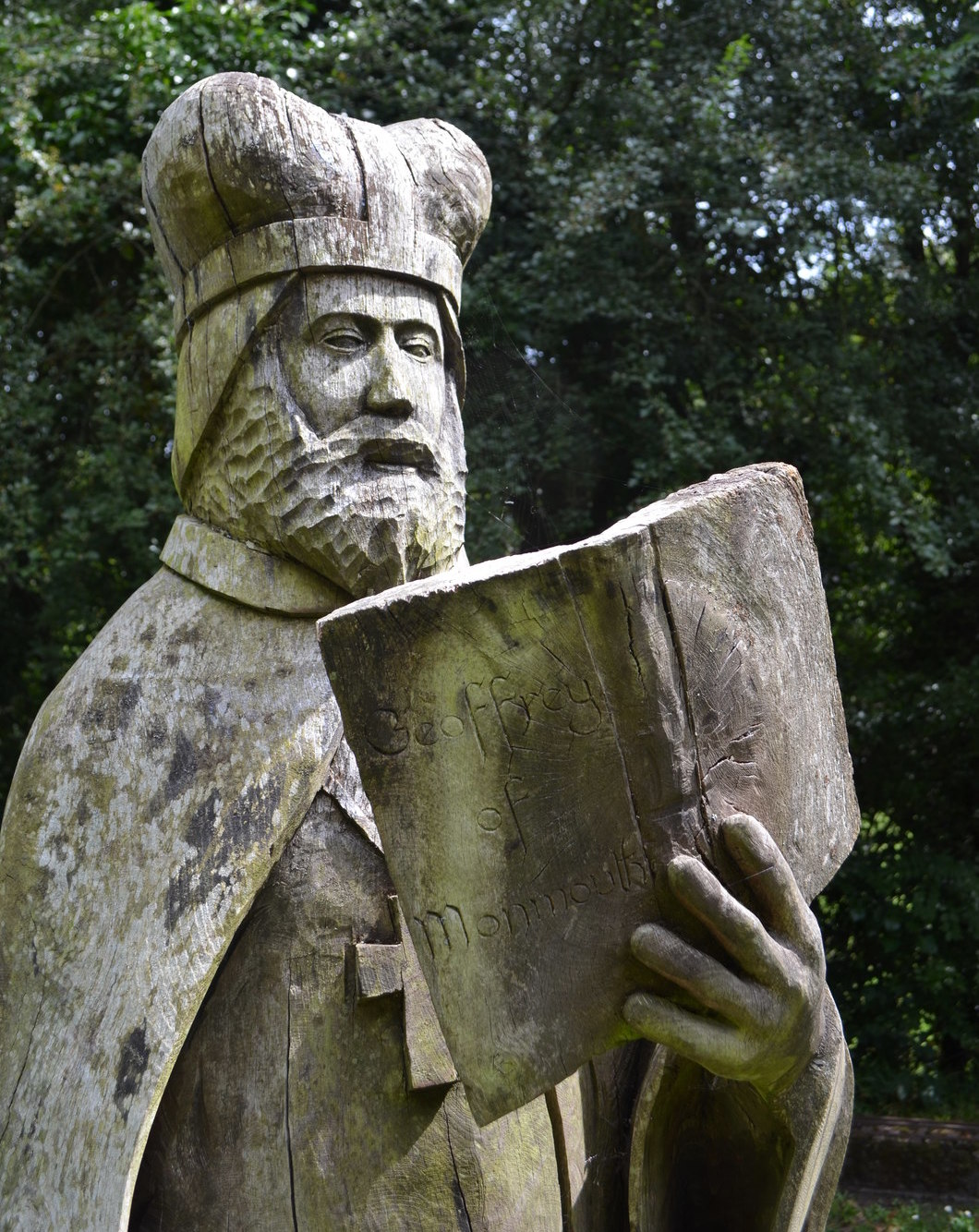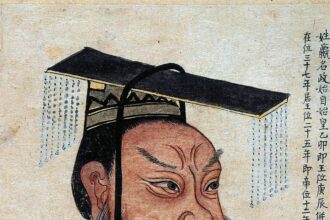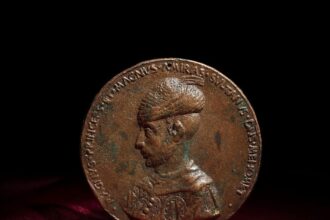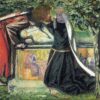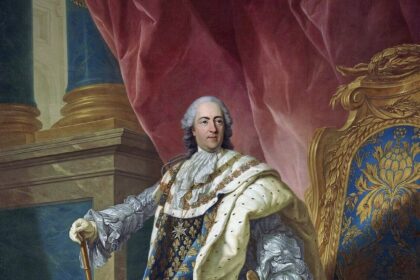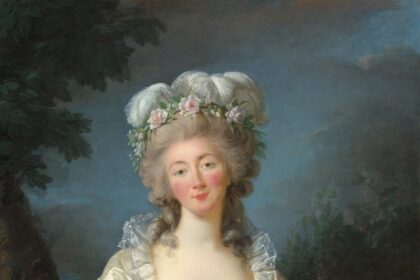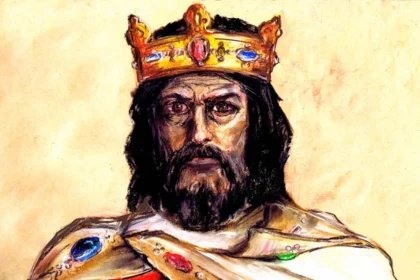The historical figure of Geoffrey of Monmouth is shrouded in legend and mystery.
He was a medieval Welsh cleric, chronicler, and scholar who wrote the Historia Regum Britanniae (History of the Kings of Britain) in 1136. This comprehensive work includes tales of King Arthur, Merlin, Gwenddoleu ap Ceidio, Uther Pendragon and many more popular characters found in popular folk tales and legends.
Geoffrey’s work has had a huge influence on British culture and literature throughout the centuries, inspiring works such as Sir Thomas Malory’s Le Morte d’Arthur to modern films like Monty Python And The Holy Grail.
In this article we will explore the life and work of Geoffrey of Monmouth and discover how he has shaped popular culture for generations. We will explore his legacy and uncover the truth behind his legendary tales.
Who Was Geoffrey of Monmouth?
Geoffrey of Monmouth was a 12th-century historian and theologian best known for his work in documenting the history of Britain and the legendary kings of Britain. He is considered one of the most influential historians of his time and is credited with writing the foundational narrative that formed the basis of British legends.
The stories that Geoffrey documented are filled with adventure, heroism, and mythology, and many have become cherished parts of British culture. In particular, his most famous work was the Historia Regum Britanniae (History of the Kings of Britain), which detailed stories such as King Arthur’s rise to power after defeating the Saxons in battle.
Overall, Geoffrey’s works laid down an essential foundation to our understanding of British history and mythology—one that has been retold and celebrated through generations. His stories have become part of our collective imagination and have been adapted into various mediums throughout centuries for modern audiences to enjoy.
His Historical Contexts
Geoffrey of Monmouth was an important figure in the 12th century court of King Henry I. He served as the King’s chaplain, a role that would provide him with abundant access to historical documents and manuscripts. This access gave him the ability to compile a vast array of historical legends and tales, including some that remain well-known today.
Through his vast collection of legendary stories, Geoffrey sought to understand the shape and scope of Britain’s history—most notably for his writing about King Arthur and Merlin. These stories have remained popular for centuries and have been adapted for various mediums, such as films, plays, and books. However, it’s important to note that Geoffrey did not invent these stories—instead he collected them from a variety of sources including oral traditions, folklore from Ireland and Wales, and Latin chronicles.
Geoffrey actively sought to use these records in order to illustrate the history of Britain for both himself and his readers. It is through Geoffrey’s collection that we can gain an insight into this fascinating period in history—and it is because of his work that we can explore these myths with even greater clarity today.
His Major Work Historia Regum Britanniae
Geoffrey of Monmouth’s most influential work, Historia Regum Britanniae (The History of the Kings of Britain), is considered one of the most important texts in British literature. Composed around 1136, it has been described as ‘the first great historical book written in the language.’
This sprawling account of the legendary origins and history of Britain had two major components. First, Geoffrey drew on earlier Welsh sources to provide a narrative account of British monarchs beginning with Brutus, who was reputed to have arrived in Britain after being blown off course while sailing from Troy. This part of his narrative includes well-known characters such as King Arthur and his knights, Merlin and Uther Pendragon, among others. The second component was an anachronistic compilation of contemporary British kings drawn from Gildas’ sixth-century list.
Using a mixture of history, fiction and folklore, Geoffrey’s Historia Regum Britanniae provided readers with a unified national history that left an indelible mark on medieval readership. His work remained widely read for centuries and inspired several prominent authors such as William Shakespeare and Sir Walter Scott in their own works.
The Influence of Geoffrey of Monmouth on Later Writers
Geoffrey of Monmouth had a profound impact on the course of British literature, with his works serving as critical foundations for texts written centuries later. His tales set the stage for many of the now classic tales of King Arthur, including stories about Excalibur and the Round Table. Geoffrey’s tales inspired many other authors to write their own versions, giving rise to the enduring mythology which continues to fascinate readers today.
In addition to inspiring later writers, Geoffrey’s work also has a rich cultural legacy. His accounts helped shape our modern-day understanding of British history and inspired artistic depictions in numerous mediums such as painting, music, dance and drama.
The influence of Geoffrey’s works can also be seen in other branches of culture such as philosophy, astronomy and astrology. He was one of the first people to connect religion with scientific thought and was even said to have predicted the coming of a new age of enlightenment. As such, he is considered by many to be one of the most important figures in Western culture and is recognized as an early pioneer in humanistic thought.
His Legacy as Pious Fraud and an Important Historian
Geoffrey of Monmouth is remembered both as a pious fraud, who embellished and propagated the stories of King Arthur and Merlin, and as an important historian whose writings shaped medieval Europe’s view of the past.
Pious Fraud
Geoffrey’s works are described by some historians as “pious frauds” as he showed a tendency to embellish existing sources with his own interpretations. His most famous work, ‘History of the Kings of Britain,’ resurrected the story of King Arthur from obscurity and popularized it throughout Europe. Even though Geoffrey made factual errors in his works, such as confusing the 5th century King Arthur with a much earlier Romano-British leader from 300 AD, his accounts brought about significant changes in medieval European culture.
Important Historian
While Geoffrey is best known for bringing about changes in medieval culture, he was also an important historian whose works shaped European views of their past. His ‘History of the Kings of Britain’ provided new information on British history and influenced other chroniclers. It documented early post-Roman Britain up to 811 CE and used both Christian missionary history and Welsh oral traditions to craft a narrative that presented an alternative version to the Christian history written by Bede. While many details were later proven false or unreliable, Geoffrey’s work helped shape people’s understanding of British history at its time.
The Controversy Around Geoffrey’s Historical Accounts
Geoffrey of Monmouth’s influence on the history of Britain is undeniable. However, there are those who contend that his accounts should not be taken at face value, as they may be exaggerated or embellished. This controversy lies in the fact that there is no evidence to back up many of his accounts and stories.
At the time, Geoffrey was essentially creating a history for the British Isles by writing about battles and kings that few records existed of. As such, some dismiss him as a ‘myth-maker’ or ‘storyteller’, and question the validity of his work. They are also quick to point out that Geoffrey was writing within a Christian context, and thus much of what he wrote may be biased towards this perspective.
These criticisms, while understandable, should not take away from Geoffrey’s legacy as one of the most important figures in British history. Despite the controversy surrounding his work, historians agree that he had a significant impact on how we understand our past – without Geoffrey’s stories, much of what we know about early Britain would not exist.
Geoffrey of Monmouth has been a source of great fascination and debate among scholars and enthusiasts alike. His writing is clearly informed by a strong knowledge of history, particularly the Celtic past. His accounts of legendary figureheads like King Arthur and Merlin were highly influential in the popular imagination and continue to fascinate us today. There is still much to learn and consider about Geoffrey’s impact and legacy, as well as the ancient stories which continue to be told about them. His works will remain iconic for many years to come.
